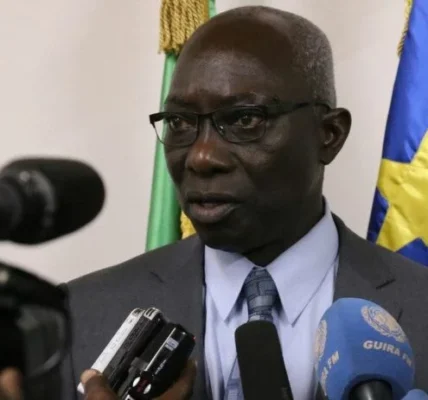
HIGH-RANKING military officials from the US and its key African allies observed intense military drills as dust and flames erupted from sections of the Sahara Desert hit by tank and artillery fire. They watched as pilots skillfully manoeuvred F-16s into formation and listened as Moroccan and American personnel outlined strategies for establishing beachheads to defend the Atlantic coastline against potential invasions.
These scenarios were part of Africa Lion, the United States’ largest annual joint military exercise on the continent, which concluded on Friday in Morocco. Over the past two weeks, approximately 8,100 military personnel from nearly three dozen countries conducted operations in Tunisia, Ghana, Senegal, and Morocco. These war games come as militaries confront new challenges in increasingly volatile regions.
Generals from the United States and Morocco celebrated Africa Lion’s 20-year anniversary, emphasising the growth and strengthened partnerships between US and African militaries since its inception. ‘This exercise has grown over the years since 2004, not only in the number of multinational service members we train with but also in the scope of the training, which has expanded to more than just security,’ said General Michael Langley, head of the United States Africa Command.
Despite the impressive live-fire demonstrations and commendations for partnerships from Langley and Colonel Major Fouad Gourani of Morocco’s Royal Armed Forces, parts of Africa are becoming increasingly dangerous. The United Nations has labelled Africa a ‘global epicentre for terrorism,’ with fatalities linked to extremist groups rising dramatically in the Sahel, a region stretching from Mauritania to Chad.
Since 2020, military officers dissatisfied with their governments’ inability to control violence have overthrown democratically elected administrations in Mali, Burkina Faso, and Niger, distancing themselves from Western powers. From 2021 to 2024, militants killed over 17,000 people across these three countries, according to data from the Armed Conflict Location & Event Data Project.
The US continues to focus on coupling weapons assistance and intelligence sharing with initiatives designed to support civilian populations and strengthen institutions. However, it faces new competition as Africa becomes a battleground for Great Powers, with Western influence waning and countries increasingly accepting economic and military support from Chinese firms and Russian contractors.
At Africa Lion, the US military showcased its offerings to countries facing instability. Beyond tanks and bombers, the joint exercises included operations and practice in field hospitals, medical evacuations, and humanitarian assistance. The exercise emphasised a ‘whole of government’ approach to addressing the root causes of instability, such as climate change and displacement, rather than solely focusing on military might. ‘It’s important that we not only be associated with kicking down doors,’ said Colonel Kelly Togiola, a command surgeon who helped set up a field hospital with Moroccan doctors. ‘In times of crises, those relationships matter.’
This strategy contrasts with that of Africa Corps, the successor to the Russian state-funded private military company Wagner. Cameron Hudson, an Africa expert at the Centre for Strategic and International Studies, noted that the US military’s focus on counterterrorism continues to empower military leaders throughout West Africa. ‘The nature of security assistance is that it’s much more visible, impactful, and manipulated by the recipient for ill,’ Hudson said. ‘When we come in with training and toys, we reinforce within societies these power dynamics that in the long run are not helpful to the consolidation of civilian democratic rule.’
Despite exercises like Africa Lion, US military leaders face challenges in maintaining their partnerships in strategically critical regions. Countries such as Niger and Chad, participants in Africa Lion, have welcomed Russian trainers and paramilitaries while pushing for the withdrawal of US troops. US military officials acknowledge the threat of ‘malign’ Russian and Chinese influence but believe they can still operate in countries accepting assistance from geopolitical rivals.
Efforts to curb Russian influence and oppose the overthrow of democratically elected leaders have not always succeeded, especially as the US military often imposes conditions on how countries can use the training and weapons provided. US law disqualifies governments deposed in military coups from receiving substantial assistance, despite the military’s emphasis on equal partnership and noninterference.













